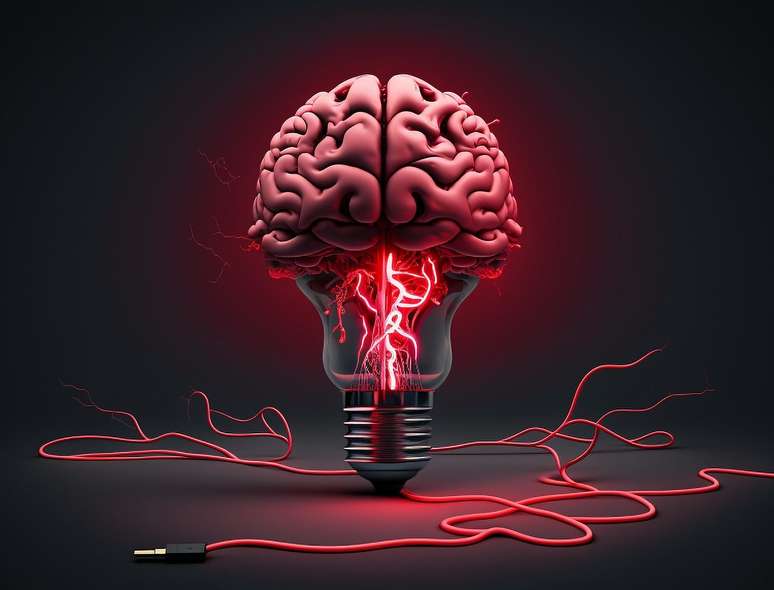It is during sleep that we carry out fundamental functions such as processing memories and consolidating learning. That old story that the brain “turns off” while we sleep has long since collapsed, but do you really know what happens in this region during the process of sleep. ? sleep? Surely, after reading this article, […]
It is during sleep that we carry out fundamental functions such as processing memories and consolidating learning.
The old story that the brain “shuts down” while we sleep has long been put to rest, but do you really know what happens in this region during the sleep process? Surely, after reading this article, you will stop neglecting this important moment of the day, and you will understand once and for all the impact that good sleep has on our health and well-being.
Sleeping is living
According to the US National Library of Medicine (NIH), sleep is as essential to survival as food and water. This is because it is during this period that the connections in the brain responsible for learning and creating memories are activated. Additionally, lack of sleep can impair concentration and rapid response skills.
“A bad night’s sleep is enough to have negative consequences on the body and brain. An example is the slight inattention in case of acute deprivation (after a bad night’s sleep)”, says Dr. Simone Prezotti, a doctor specializing in sleep medicine . But she points out that the effects can be cumulative and therefore bring more serious consequences over time. “Chronic sleep deprivation increases the risk of Alzheimer’s disease and other neurodegenerative diseases.”
Brain more active than ever
According to Simone, various structures of the brain are involved in sleep, that is, they remain active while we sleep. Some of them are the hypothalamus, brainstem, pineal gland, and amygdala. But let’s analyze them a little more and what their actions are during this period.
Hypothalamus
It contains groups of nerve cells that act as control centers and influence sleep and arousal. Inside it is the suprachiasmatic nucleus (SCN), a cluster of thousands of cells that receive information about light exposure directly from the eyes and control their behavioral rhythm.
Brainstem
At the base of the brain, it communicates with the hypothalamus to control transitions between wakefulness and sleep. Sleep-promoting cells in the hypothalamus and brainstem produce a brain chemical called GABA, which works by reducing the activity of arousal centers in the hypothalamus and brainstem. The brainstem also plays a special role in REM sleep: it sends signals to relax the muscles, so that muscle atonia occurs during dreams.
Thalamus
It acts as a relay of information from the senses to the cerebral cortex. During most stages of sleep, the thalamus is silent, allowing you to isolate yourself from the outside world. But during REM sleep, the thalamus is active, sending to the cortex the images, sounds, and other sensations that fill our dreams.
Pineal gland
It receives signals from the SCN and increases the production of the hormone melatonin, which helps you fall asleep when it gets dark.
Basal forebrain
It also promotes sleep and wakefulness, while part of the midbrain serves as an arousal system. The release of adenosine (a chemical byproduct of cellular energy consumption) from basal forebrain cells, and possibly other regions, supports sleep.
Amygdala
An almond-shaped structure involved in processing emotions becomes increasingly active during REM sleep.
Sleep and its phases…
Have you ever heard of REM sleep? Well, this is considered the deepest phase of sleep, because, among other functions, it is in this phase that memories are processed and learning is consolidated.
But he’s not the only one. According to Simone Prezotti, there are two fundamental types of sleep: REM (rapid eye movement) sleep and non-REM sleep, which has three different phases. Each of them is linked to specific brain waves and neuronal activities.
Non-REM sleep
This phase is divided into three phases, as the specialist doctor explains:
Phase 1 (N1): It is the transition from wakefulness to sleep. “During this short period of light sleep, heart rate, breathing, and eye movements slow and muscles relax. Brain waves begin to slow in relation to daytime waking patterns,” he describes.
Phase 2 (N2): It is also a period of sleep, in which the heartbeat, breathing and muscles relax even more. “Body temperature decreases and brain wave activity decreases, but is characterized by brief bursts of electrical activity.”
Phase 3 (N3): it is the period of deep sleep, which occurs mainly in the first half of the night. Heart rate and breathing slow to even lower levels, and brain waves become much slower. “This is the phase in which the body repairs and regenerates tissues, builds bones and muscles and strengthens the immune system,” explains Simone.
*It is also in stage 3 that sleepwalking, night terrors and nocturnal enuresis occur.
The famous REM
The much talked about and well-known REM sleep occurs for the first time 90 minutes after falling asleep. “The eyes move rapidly from side to side behind closed eyelids. The mixed-frequency brain wave activity approximates that observed during wakefulness,” explains the expert.
According to the doctor, in this phase breathing becomes faster and irregular, and the heart rate increases to levels close to those of the waking state.
“REM sleep is the period associated with dreaming and irregular muscle movements, as well as rapid eye movements. The brain is very active in this phase, increasing brain metabolism by up to 20%.”
How long does it last?
Simone clarifies that a typical night’s sleep is composed of 4 to 5 sleep cycles, with the progression of the phases occurring in the following order: N1, N2, N3, N2, REM. “A complete sleep cycle lasts about 90 to 110 minutes. The first REM period is short, and as the night progresses, longer REM periods and a decrease in deep sleep time occur,” he explains.
The total duration of sleep varies greatly depending on the stage of life, according to the doctor, but for adults, between 7 and 9 hours of sleep per night is recommended. BOX
Not sleeping is dangerous for your brain and your overall health!
It is a fact that the hectic routine of a large part of the population may not allow for the ideal amount of sleep, but it is important to make sure you sleep as much as possible and have the time available (obviously according to the indicated times – from 7.00 to 9.00 ). This is because sleep deprivation impairs functions mediated by the prefrontal cortex, which primarily affect working memory and attention. “The shorter the duration of sleep, the greater the cognitive deficits,” the doctor emphasizes.
When we stay awake for longer hours, pressure on sleep increases and brain waves change, becoming slower. “It is becoming increasingly difficult to maintain attention and concentration, difficulty memorizing, greater risk of errors that can lead to accidents, for example,” he warns.
And in the long term? The brain also suffers
It only gets worse! “During persistent sleep deprivation, both daytime sleepiness and cognitive impairments continue to progress,” Simone says.
The expert explains that sleep plays a neuroprotective role, fundamental for eliminating toxic metabolites produced in the brain through the glymphatic system. During sleep, this liquor flows more abundantly, which significantly increases the elimination of these toxic substances from neurons and intercellular spaces. “When sleep is limited, the glymphatic system does not have enough time to perform its function of eliminating toxins and proteins which, accumulated over the years, can lead to dementia.”
“Sleep deprivation is associated with stress and anxiety, it changes the way emotional information, judgment, decision making is processed.”
Turn off the screens and go to sleep
If you, like most people who live connected to the Internet, have difficulty letting go of your screens, know that this could seriously damage the quality of your sleep. Simone Prezotti recommends looking for more relaxing activities in the evening, to slow down your body and brain before going to sleep. “Turn off the lights (this includes not using screens), take a shower, read a physical book, write down worries and plans for the next day in a notebook, relaxation techniques, breathing, meditation, are some suggestions,” he notes.
Source: Terra
Ben Stock is a lifestyle journalist and author at Gossipify. He writes about topics such as health, wellness, travel, food and home decor. He provides practical advice and inspiration to improve well-being, keeps readers up to date with latest lifestyle news and trends, known for his engaging writing style, in-depth analysis and unique perspectives.









